Talks On Psychoanalysis
narcissism
Episodes

Thursday Feb 01, 2024
Thursday Feb 01, 2024
How does a psychoanalyst grapple with the sudden impact of a traumatic loss in their personal life, and how does it reverberate in their professional capacities? How do analysts navigate the challenges associated with illness or the inevitable effects of aging?Moving beyond the various losses in real life, analysts face the challenge of dealing with the loss and mourning of their illusions—illusions of immortality and invulnerability. Analysts are tasked with confronting their own finitude and limits, contemplating how to approach and address them.
In this podcast episode, Marc Hebbrecht delves into the nuanced scenarios of loss and disillusionment that psychoanalysts encounter throughout their careers, drawing insights from Nanni Moretti's film “La Camera del Figlio”, as an illustrative example.
Marc Hebbrecht is a psychiatrist and psychoanalyst. He is a full member, training analyst and current president of the Belgian Psychoanalytical Society (SBP). He lives in Tongeren, Belgium, and works in private practice and at the Leuven University Hospital for Psychiatry in Kortenberg, near Brussels. He was editor-in-chief of the Dutch Journal of Psychoanalysis. He teaches psychoanalytic psychotherapy at the University of Leuven and integrative psychotherapy at the University of Antwerp. He has written several books and published in major international psychoanalytical journals. His areas of interest are dreams, narcissism, erotic transference and psychoanalytic nosography.
Link to download the paper https://docs.google.com/document/d/1-Nyy_48pCt2QFuxA14lu3PbToGT6g9k-/edit?usp=share_link&ouid=112457875385152358388&rtpof=true&sd=true
A subtitled version of this podcast is available on our YouTube channel:https://youtube.com/playlist?list=PLhxiwE76e0QaOquX3GujdwNLFsgxUQNXz&si=yf381EDu3pess6Yz
This episode has been produced in collaboration with Julia-Flore Alibert.
This Podcast Series, published by the International Psychoanalytical Association, is part of the activities of the IPA Communication Committee and is produced by the IPA Podcast Editorial Team.
Head of the Podcast Editorial Team: Gaetano Pellegrini.Editing and Post-Production: Massimiliano Guerrieri.
This episode is available also in French

Thursday Dec 14, 2023
Thursday Dec 14, 2023
The place of sexuality in psychoanalytic treatment and training today: Can we observe a disappearance of sexuality in case reports and supervisions?
How does the evolving discourse on sexuality influence psychoanalytic practice and training? In an era where sexual dysphoria is seemingly on the rise, particularly among younger generations, questions arise about the current positioning of Freud's drive theory and the status of sexual issues in psychoanalytic education. Are we witnessing a shift where sexuality loses its central place within psychoanalytic thought?
In this episode of the IPA Talks On Psychoanalysis podcast series, we explore these questions through a comprehensive discussion. The focus is on the potential diminution of sexual themes in psychoanalytic case reports, as observed in recent years, and its implications for psychoanalytic methodology. The discourse originated in the 2021 supervisors' and training analysts' conference of the German Psychoanalytical Association (DPV) in Cologne, Germany and quickly spread to other places, reflecting global concerns about the reduced emphasis on sexuality in candidates' reports for qualification.
This exploration revisits some cornerstones of Freud's seminal theories but also examines the more modern theories and psychoanalytic techniques that emphasize transference-countertransference dynamics for the understanding of sexual fantasies and identities. The role of societal changes, shifts in sexual identity, and the impact of media on sexual behaviour and expression are critically analyzed.
The paper featured in this episode has been previously presented at various events, including a SPP Webinar and the 53rd IPA Congress in Cartagena. It has been translated and published in several psychoanalytic Journals. The IPA Talks On Psychoanalysis podcast series now offers it to its listeners in German, English, Spanish and Italian.
You can access the recent edition of the APA's Journal of Psychoanalysis, featuring a publication with two accompanying commentaries by Alicia Killner and Beatriz Zelcer, at this link: https://revista-de-psicoanalisis.apa.org.ar
Rotraut De Clerck is a renowned psychoanalyst of the German Psychoanalytical Association (DPV) and has been a long-term guest to the British Psychoanalytic Society (BPS). Her work notably intersects psychoanalysis with culture and public discourse. She has carried out the “Psychoanalysis in Literature – Literature in Psychoanalysis” series at the Literaturhaus Frankfurt, fostering dialogue between contemporary writers and Freud's texts. De Clerck's clinical interests include theories on the dynamic interplay of narcissism and object love, of the unconscious and changes in sexuality, including homosexuality “neo-sexualities” and the concepts of masochism. De Clerck's contributions extend to psychoanalytic portraits of literary figures like Albert Camus, Virginia Woolf, painters like Maria Lassnig and notably Lucian Freud. She chairs the EPF's “Psychoanalysis and Literature group and serves as a Consultant on the IPA Culture Committee. Her recent projects focus on the place of sexuality in psychoanalytic theory and practice today.
Link to the paper https://docs.google.com/document/d/1jwtEt3rBf0BSGsl_uFxv6xwVrPPr_dvR/edit?usp=drive_link&ouid=112457875385152358388&rtpof=true&sd=true
This episode is available also in:
German
Spanish
Italian
A subtitled version of this podcast is available on our YouTube channel:https://youtube.com/playlist?list=PLhxiwE76e0QaOquX3GujdwNLFsgxUQNXz&si=yf381EDu3pess6Yz
This Podcast Series, published by the International Psychoanalytical Association, is part of the activities of the IPA Communication Committee and is produced by the IPA Podcast Editorial Team.
Head of the Podcast Editorial Team: Gaetano Pellegrini.Editing and Post-Production: Massimiliano Guerrieri.
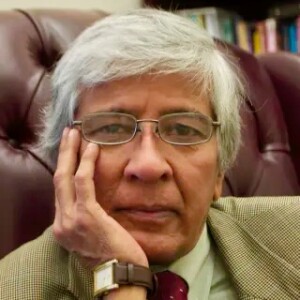
Friday Nov 03, 2023
Friday Nov 03, 2023
Still Life with Fruit and Wineglasses on a Silver Plate, c. 1659-1660, Willem Kalf. Courtesy Mauritshuis, The Hague.
Why do some people seem unable to achieve full satisfaction in things? What keeps them dissatisfied even after achieving their goals? And why does the Ego persist in avoiding mourning and sticking to the same solutions?
In this episode of the IPA Talks On Psychoanalysis podcast series, Salman Akhtar presents his theory that redefines the classical Kleinian conception of the rupture between Gratification and Satisfaction as a consequence of the death instinct derived attack upon the provider of gratification. This should indeed lead us to the search for a state of tranquility rather than an increase in tension. What role does the Life Instinct, instead, play in this restless search, in this excessive intense refusal to believe that further gratification shall not result in satisfaction?
This exploration not only offers a theoretical perspective but also has profound implications for clinical practice and our understanding of psychoanalytic technique.
The episode we share with you today is sourced from the wealth of content presented at the 53rd IPA Congress in Cartagena. It was a part of the "Fanning the Flames" Panel, featuring Salman Akhtar, alongside Cordelia Schmidt-Hellerau, Claudia Antonelli, and moderated by Fred Busch. We are delighted to announce the opportunity to watch the complete panel, along with many other outstanding presentations from the Cartagena Congress, on the www.ipa.world website.
Salman Akhtar, MD is an internationally known psychiatrist, psychoanalyst, writer, and poet based in the United States. He has published 108 authored or edited books and given lectures and workshops in over 40 countries. Dr.Akhtar has served on the editorial boards of the three most important journals of our field, namely Journal of the American Psychoanalytic Association (JAPA), IJP, and The Psychoanalytic Quarterly PQ. His books have been translated in many languages and he has received numerous professional honors, including the highly prestigious Sigourney Award for Distinguished Contributions to Psychoanalysis. Recently a 10-volume set of his Selected Papers was released at a festive ceremony at the Freud House& Museum in London. Dr. Akhtar has published 18 collections of poetry and serves as a Scholar-in-Residence at the Inter-Act Thater Company in Philadelphia.
A subtitled version of this podcast is available on our YouTube channel:
https://youtube.com/playlist?list=PLhxiwE76e0QaOquX3GujdwNLFsgxUQNXz&si=yf381EDu3pess6Yz

Monday Mar 06, 2023
Monday Mar 06, 2023
Happiness is humans' undeniable desire, but why does it seem so within reach for some, and so rare and difficult for others? What makes it possible from the psychic perspective?
In this episode, Dr. Marion Minerbo shares with us, in a clear and concise voice, her studies on the aptitude for happiness. The author describes brief moments of happiness and from them highlights the psychic elements engaged in making this experience possible. Firmly based on psychoanalytic theory and illustrated with simple everyday life moments, she illuminates and clarifies what she calls aptitude for happiness".
Marion Minerbo, MD, PhD. is a full member and training analyst at the Brazilian Psychoanalytic Society of São Paulo. In 2015 she received the award for the best work of training analysts at the Brazilian Congress of Psychoanalysis on "Contributions to a theory on the constitution of the cruel superego". She has previously published dozens of articles and the following books: "Conversations on clinical practice"; "New dialogues on psychoanalytic clinic”; "Neurosis and non-neurosis” ; "Transference and Countertransference"; "A posteriori, a journey", all by Blucher Editorial, São Paulo, all of which published in Portuguese.
Her new book,“Notes on the Aptitude for Happiness”,is in press.
This episode is available also in French
and Portuguese

Wednesday Jan 11, 2023
Wednesday Jan 11, 2023
This paper was published in The Italian Psychoanalytic Annual issue 16, in 2022. The full text can be found on the publisher Raffaello Cortina's website:
https://riviste.raffaellocortina.it/scheda-articolo_digital/stefano-bolognini/hidden-unconscious-buried-unconscious-implicit-unconscious-Annual_2022_7-3814.html
The Italian Psychoanalytic Annual 2022/16 https://riviste.raffaellocortina.it/scheda-fascicolo_contenitore_digital/autori-vari/the-italian-psychoanalytic-annual-2022-16-9788832854947-3807.html
The current extension of the concept of the Unconscious to different levels, configurations, and functioning of the mind is the result of decades of collective reflection on clinical work as well as on theory. Analysts today have a broader, more refined and complex knowledge of defensive and transformative processes, and this has also led to an evolution in technique. The paper we present today is a combination of psychoanalytic theory and technique through two clinical cases that present complex articulations of spurious unconscious functional areas and modalities, alternately the repressed and the not repressed.
Stefano Bolognini is a psychiatrist and training analyst of the Italian Psychoanalytic Society, of which he was Scientific Secretary and President. After serving as Representative on the first IPA Board, he became its President in 2013 and served in that role until 2017.He also founded the "IPA Encyclopedic Dictionary of Psychoanalysis" and is a member of the Advisory Board of the International Psychoanalytic University Berlin (IPU), Honorary Member of the New York Contemporary Freudian Society (NYCFS), and of the Los Angeles Institute and Society for Psychoanalytic Studies (LAISPS). Bolognini was a member of the Editorial Board of the International Journal of Psychoanalysis for 10 years, and has published over 250 psychoanalytic works, both books and papers.
This Podcast Series, published by the International Psychoanalytical Association, is part of the activities of the IPA Communication Committee and is produced by the IPA Podcast Editorial Team. Head of the Podcast Editorial Team: Gaetano Pellegrini.
Editing and Post-Production: Massimiliano Guerrieri.Proof Reading: Elizabeth Danze and Valentine Moscovici.
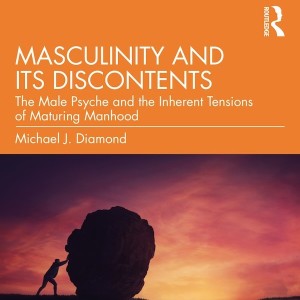
Wednesday Oct 26, 2022
Wednesday Oct 26, 2022
The paternal function is one of the most embedded concepts both in the singular dimension of clinical thinking and in the extended of social functioning. It underlies, for example, one of the foundational elements of the psychoanalytic method: the very idea of “Analytic Setting” could not exist without a paternal function.
In today's episode, thanks to the work of Michael J Diamond, we will explore its many aspects, including the construction of a triangular space, the role of the Third in the internal functioning of the subject, and the question of limits. We will also delve into more specific characteristics, such as the tenderness and sensory intimacy between a little boy and his father. We might say that this podcast episode is like a "child" of Michael J Diamond’s recent book published by Routledge and entitled: "Masculinity and Its Discontents”, in which he studies, as the subtitle says: “The Male Psyche and the Inherent Tensions of Maturing Manhood”.
Link to download the paper https://docs.google.com/document/d/1QfcWssRszuStn90QjrWXh7YvvDfGCw3A/edit?usp=sharing&ouid=112457875385152358388&rtpof=true&sd=true
Michael J. Diamond, PhD, FIPA is a Training and Supervising Analyst at the Los Angeles Institute and Society for Psychoanalytic Studies. His major publications are on psychoanalytic technique and analytic mindedness; masculinity, femininity, and gender theory; fathering and the paternal function; trauma and dissociation; hypnosis and altered states; and group processes and social action. He has written five books including today’s featured book on Masculinity and Its Discontents: The Male Psyche and the Inherent Tensions of Maturing Manhood published by Routledge. His most recent book on applied psychoanalysis, Ruptures in the American Psyche: Containing Destructive Populism in Perilous Times, was just published (by Phoenix Publishing). His other major books include My Father Before Me: How Fathers and Sons Influence Each Other Throughout Their Lives and an edited book on The Second Century of Psychoanalysis: Evolving Perspectives on Therapeutic Action (with Chris Christian). He is the honored recipient of numerous awards for his teaching, writing, and clinical contributions, and has a full-time clinical practice in Los Angeles, California where he remains active in teaching, supervising, and writing.
Selected Recommended Readings for Michael J. Diamond’s Podcast
Blos, P. (1985). Son and Father: Before and Beyond the Oedipus Complex. New York: Free Press.
Corbett, K. (2009). Boyhoods: Rethinking Masculinities. New Haven, CT: Yale University Press.
Diamond, M. J. (2004). The shaping of masculinity: revisioning boys turning away from their mothers to construct male gender identity. Int. J. Psychoanal., 85:359–380.
Diamond, M. J. (2006). Masculinity unraveled: the roots of male gender identity and the shifting of male ego ideals throughout life. J. Amer. Psychoanal. Assn., 54:1099–1130.
Diamond, M. J. (2007). My Father Before Me: How Fathers and Sons Influence Each Other Throughout Their Lives. New York: Norton.
Diamond, M. J. (2015). The elusiveness of masculinity: primordial vulnerability, lack, and the challenges of male development. Psychoanal. Q., 84:47–102.
Diamond, M. J. (2017). The missing father function in psychoanalytic theory and technique: the analyst’s internal couple and maturing intimacy. Psychoanal. Q., 86:861–887.
Diamond, M. J. (2020). The elusiveness of “the feminine” in the male analyst: living in yet not being of the binary. Psychoanal. Q.,89:503–526.
Diamond, M. J. (2021). Masculinity and Its Discontents: The Male Psyche and the Inherent Tensions of Maturing Manhood. London: Routledge.
Freud, S. (1905). Three essays on the theory of sexuality. S. E., 7:130–243.
Friedman, R. C. & Downey, J. L. (2008). Sexual differentiation of behavior: the foundation of a developmental model of psychosexuality. J. Amer. Psychoanal. Assn., 56:147–175.
Glasser, M. (1985). The “weak spot”—some observations on male sexuality. Int. J. Psychoanal., 66:405–414.
Laplanche, J. (1997). The theory of seduction and the problem of the other. Int. J. Psychoanal., 78:653–666.
Lax, R. F. (1997). Boys’ envy of mother and the consequences of this narcissistic mortification. Psychoanal. Study Child, 52:118–139.
Moss, D. (2012). Thirteen Ways of Looking at a Man: Psychoanalysis and Masculinity. London: Routledge.
Stoller, R. J. (1985). Presentations of Gender. New Haven, CT: Yale University Press.
This Podcast Series, published by the International Psychoanalytical Association, is part of the activities of the IPA Communication Committee and is produced by the IPA Podcast Editorial Team. Head of the Podcast Editorial Team: Gaetano Pellegrini. Editing and Post-Production: Massimiliano Guerrieri.

Thursday Aug 25, 2022
Thursday Aug 25, 2022
In this episode dr. Marion Minerbo brings us an original hypothesis about the constitution of the cruel superego – the one that, according to Freud, plants its roots in the id and is pure culture of the death drive. In her hypothesis, the hatred with which the superego attacks the ego comes from the identification with unconscious micro-vows of death that originate in the paranoid core of the parental figure. She proposes a formula that helps us to recognize that these attacks have the function of defending the parental figure's narcissism: “it's not me who... it's you who... and I hate you for that”. Within an asymmetrical relationship with the adult, the child has no alternative but to accept these beta-elements and identify with them. These identifications would then constitute the core of the cruel superego. In the original paper, she shows how these hypotheses about how the superego is constituted helps us in finding a way for its deconstruction .
Marion Minerbo, MD, PhD, is a full member and training analyst at the Brazilian Psychoanalytic Society of São Paulo. She has published dozens of articles and the following books: "Conversations on clinical practice"; "New conversations on psychoanalytical practice”; "Neurosis and non-neurosis”; "Transference and Countertransference"; "A posteriori, a journey", all by Blucher Editorial, São Paulo, all of which published in Portuguese.
In 2015, at the Brazilian Congress of Psychoanalysis, she received the main award for this paper: the Durval Marcondes Award.
This episode is available also in Portuguese
https://anchor.fm/talksonpsychoanalysis-por/episodes/Contribuies-para-uma-teoria-sobre-a-constituio-do-supereu-cruel----Marion-Minerbo-e1mv0hm

Sunday Feb 13, 2022
Sunday Feb 13, 2022
Flowers and Fruit in a Chinese Bowl, c. 1645, Juan de Zurbarán. Courtesy Art Institute Chicago.
What role does Pleasure occupy in human development? What influence did this theme have on the development of Freud's Psychoanalytic theory? What do we think in contemporaneity about the function of pleasure in the psyche?
In this episode we have the pleasure of listening to Dr. Rui Aragão Oliveira with his article “Why pleasure?”. Dr. Rui provides an overview of the relevance of the topic for the very emergence of Psychoanalysis, addresses the role of pleasure in the dynamic-economic balance of the psyche and its development, discusses the relationship between people and pleasure in our current society and, finally, points out aspects of pleasure in the clinical work of the analyst.
Dr. Rui Aragão Oliveira is a full member and training analyst of the Portuguese Psychoanalytic Society, the SPP, Phd in Clinical Psychology. He is the Chair of the SPP Teaching Committee and Past President of the SPP.
He was editor-in-chief of the Revista Psicanalítica Portuguesa and also editor by the IPA of the international publication Psychoanalysis.Today.
Link to the paper https://docs.google.com/document/d/1-LWo16_Lapji9PCqGOJ8d-AMztwT7twB/edit?usp=sharing&ouid=112457875385152358388&rtpof=true&sd=true
This episode is available also in Portuguese

Sunday Nov 14, 2021
Sunday Nov 14, 2021
Themes of hiding abound in the developmental narratives of boys who grow up to be gay. Their need to hide is reinforced by the traumatizing public humiliation that ensues from either open expressions of same-sex desire or gender- nonconforming behavior. The experience of being discovered, punished, and humiliated for showing or acting on such feelings or behaviors can lead to hiding activities that persist long after the actual trauma is forgotten. When open expressions of same-sex intimacy are driven underground, clandestine and forbidden sexual activities, highly tinged with interpersonal anxiety, may become a significant mode of relatedness. This papers offers a clinical psychoanalytic approach for working with gay men that distinguishes the concept of sexual compulsion from that of sexual identity. Harry Stack Sullivan’s conceptualization of dissociative defenses is useful in clinically understanding and therapeutically working with gay men in general, and with sexually compulsive gay men in particular. This approach allows the sexual identities of gay men to be respected while addressing the compulsive behaviors that some of them find so troubling.
Jack Drescher is a psychiatrist and psychoanalyst in private practice in New York City, a Clinical Professor of Psychiatry at Columbia University and a Faculty Member of their Psychoanalytic program and their Division of Gender, Sexuality and Health. He is an adjunct Professor at the New York University Postdoctoral Program in Psychotherapy and Psychoanalysis and a Training and Supervising Analyst at the William Alanson White Institute. He also serves as a consultant to IPA’s Committee on Gender and Sexual Diversity.
SELECTED PRESENTATIONS AND PUBLICATIONS
Reed GM, *Drescher J, Krueger RB, Atalla E, Cochran SD, First MB, Cohen-Kettenis PT, et al. Revising the ICD-10 Mental and Behavioural Disorders classification of sexuality and gender identity based on current scientific evidence, best clinical practices, and human rights considerations. World Psychiatry, 15:205–221.
Drescher J, Schwartz A, Casoy, F, McIntosh CA, Hurley, B, Ashely K, et al: The growing regulation of conversion therapy. Journal of Medical Regulation, 102(2):7-12.
Drescher J, Cohen-Kettenis PT, Reed GM: Gender incongruence of childhood in the ICD-11: Controversies, proposal, and rationale. Lancet Psychiatry, 2016, 3:297-304.
Drescher J, Cohen-Kettenis PT, Winter S: Minding the body: Situating gender diagnoses in the ICD-11. International Review of Psychiatry, 2012, 24(6): 568–577.
Drescher J: Queer diagnoses: Parallels and contrasts in the history of homosexuality, gender variance, and the Diagnostic and Statistical Manual (DSM). Archives of Sexual Behavior, 2010, 39:427–460.

Thursday Aug 26, 2021
Thursday Aug 26, 2021
In this episode we’ll listen to Christine Anzieu-Premmereur on the construction of auto-eroticism and the ability to fantasize-dream at the dawn of life.
Christine Anzieu-Premmereur is a PhD Psychologist trained in Paris, an Adult and Child Psychiatrist and Psychoanalyst, member of the Société Psychanalytique de Paris. She moved from Paris to New York in the year 2000 where she has her private practice.
She is a faculty teacher at the Columbia Psychoanalytic Center for Training and Research where she is the director of the Parent-Infant Psychotherapy Training Program, and Assistant Clinical Professor in Psychiatry at Columbia University.
She is the chair of the IPA Committee for Child and Adolescent Psychoanalysis and a member of the New York Psychoanalytic Institute. She chairs the discussion group on Parent-Infant Programs at Psychoanalytic Institutes at the American Psychoanalytic Association meetings.
She has published several articles and chapters on her work as a psychoanalyst of adults, children, and infants with their parents, including recently "A Psychoanalytic Exploration of the Body in Today's Psychoanalysis" published by Routledge, and has collaborated with Dunod on "Le jeu en psychanalyse d'enfants" (Playing in child psychoanalysis) and "Pratiques psychanalytiques avec les bébés" (Psychoanalytic practices with babies).
link to the paper: https://drive.google.com/file/d/1UDFE2VmMO8nhSSliHL5WzPSgKXNYFit1/view?usp=sharing
this episode is available also in French
A Circular ceiling design with clouds and roses, second half 19th century. Jules-Edmond-Charles Lachaise. Courtesy Met Museum, New York.

Tuesday Jun 22, 2021
Tuesday Jun 22, 2021
In preparation for the 52nd IPA Congress, we will present a number of episodes dedicated to the activities that will take place and its theme: THE INFANTILE: ITS MULTIPLE DIMENSIONS.
Please visit ipa.world/theinfantileonline to explore the extensive program and to register. The 52nd IPA Congress will be held online from July 21st to August 1st, and by visiting our program you can set your schedule to suit your personal time zone.
In this episode we’ll listen to Laura Colombi talking about the paper titled: “The dangerous call of the wild. Clinical considerations about dissociation into fantasy”.
Here she discusses how fantasizing, understood as a flight into fantasy, belongs to a type of mental functioning as opposed to that of imaginative fantasy. The Author follows Winnicott’s idea that withdrawal into fantasy can take on a dissociative quality, which is structured early on as a defensive solution following the loss of hope in object relations.
Such defence becomes the foundation for a dangerous enclave in which the subject ends up enclosing himself, experiencing an illusory self-sufficiency which is nourished with omnipotence and sensory pleasure.
From this perspective, the Author suggests that the withdrawal into fantasy must be understood as a risky factor of emptying the Self or of a crystallization into psychopathological structures. This way, it could become an automatic activity of ‘non-thought’ that replaces the working-through processes necessary for the development of the mind.
Clinical material, omitted in the podcast, of both children and adults will illustrate how the flight into fantasy, over time, may take the form of an anti-relational realm of the mind, compromising the operations necessary for the integration of psychic life.
Laura Colombi is Training Analyst of the Italian Psychoanalytical Society and Analyst for Children and Adolescents. She has been working on the educational and theoretical levels on disorders related to the pathology of primitive psychological organization and weaves together interests from the clinic of children and adult patients with severe psychopathology and identity disorders. On the topic of 'dissociation into fantasy' she has published in the International Journal of Psychoanalysis and in the Italian Psychoanalytic Journal.
This episode is available also in Italian
Clearing in the Forest (1880), Rodolphe Bresdin. Etching on cream laid paper. The Art Institute of Chicago.
Debussy Rêverie, Constantin Stephan.
We are pleased to announce that Talks On Psychoanalysis has been selected in the Top 15 Psychoanalysis Podcasts list by Feedspot and that in this moment we are first in the ranking. Feedspot editorial team extensively searched on Google and social media websites to find the best Psychoanalysis Podcasts and ranked them based on several factors such as:
Podcast content quality
Post consistency
Age of the podcast
Average number of shares on social sites
Traffic of your podcast and more.

Monday May 10, 2021
Monday May 10, 2021
Martina Burdet is a training analyst for the Psychoanalytic Association of Madrid and member of the Psychoanalytic Society of Paris. She is the Chief Executive of the e-journal Psychoanalysis.today, former General Secretary of the EPF and the Current Chair of its Working Group on Remote Analysis.
Her book, Love in the Time of the Internet – Do you l@ve me or do you follow me? was written as a response to the increasing number of patients she has seen over recent years who are experiencing problems in their lives – problems that seem to come at the crossroad between the intrapsychic world and the social environment, digital revolution and virtual reality. She wrote the book as a psychoanalyst for psychoanalysts, but it is also intended for a wider public interested in psychoanalysis. In it, she combines psychoanalytic theory with what she calls ‘Ordinary Stories’; that is, stories of patients who describe how they can – or actually, how they cannot – love in the time of the Internet.
This episode is available also in French
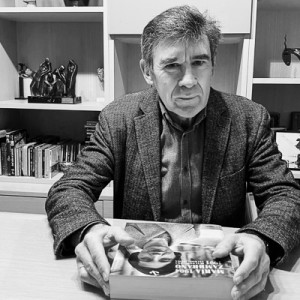
Tuesday Apr 27, 2021
Tuesday Apr 27, 2021
In this text, the author states that in clinical work with patients, the narcissistic problem places the psychoanalyst's sensitivity in the foreground. He addresses a conceptualization of narcissism and the sexualization of the ego, following the postulations of André Green. Sabin Aduriz also develop how the narcissistic polarization of the instinctual drives affects the splitting of the currents of tenderness and sensuality, as well as in the role of the primal scene. Finally, he addresses the function of the ideal and the validity of narcissism in contemporary culture.
Sabin Aduriz is a Psychoanalyst. He is a training analyst of the Madrid Psychoanalytic Association (APM), taking charge of teaching and training at the institute of the APM. He graduated in Psychology and Pedagogy. At the outset of his career, he worked at the Mental Health Center in San Fernando de Henares (Madrid) and for 10 years in a high school environment, working especially with adolescents within the FUHEM Schools network, a independent, non-profit association dedicated to promoting social justice, environmental sustainability and social action through education.
He has served as Director of the APM Institute and, therefore, of its Teaching Committee.
He has given lectures and courses on "Narcissism today" and on “Clinical treatment of narcissism in adolescence." He also has published several articles in the APM journal, including one titled Repetition and Creation: Narcissism and Drive Life.
Link to the paper https://drive.google.com/file/d/1oUoq_qjIi6LbD7DFCNDXdXqTLmsQMN_8/view?usp=sharing
This episode is available also in Spanish
"Julie Le Brun (1780–1819) Looking in a Mirror", by Elisabeth Louise Vigée Le Brun. Courtesy Met Museum, New York.
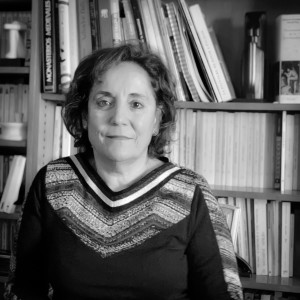
Sunday Mar 07, 2021
Sunday Mar 07, 2021
In this episode, Milagros Cid Sanz reflects on the transitional role of the narcissistic double in the constitution of the subject, considering this transition from the integration of autoerotisms into a unified narcissism, to the full differentiated object relationship in its alterity, and its repercussions on the psychoanalytical cure.
Milagros Cid Sanz is a psychiatrist, psychoanalyst, Full Member and Training Analyst of the Asociación psicoanalítica de Madrid (APM), were she has held various positions, among which we highlight:
- President of the APM (2006-2009)
- Currently, Editor in chief of la revista de psicoanálisis de la Asociación psicoanalítica de Madrid.
At the EPF (European psychoanalytical federation):
Member of the Scientific Committee for the Congress of the FEP
At the IPA (International psychoanalytic association) :
Member of the IPA Outreach Committee as European Representative.
From 2020 Co-chair for Europe of the IPA Ethical Committee.
Conferences and clinical presentations in Spain, Europe, and Latin-America. She is author of more than fifty published works. Psychoanalytical articles, books reviews and psychoanalytical collective books.
Link to the paper https://drive.google.com/file/d/1NW5HyocIQD7BcsIZbTB2SH-TYJ3y2psO/view?usp=sharing
This episode is available also in Spanish
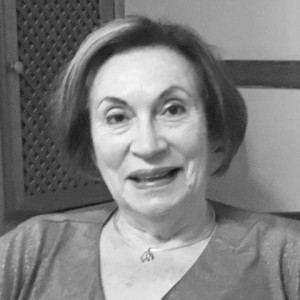
Monday Jan 18, 2021
Monday Jan 18, 2021
In this episode, in collaboration with the IPA Publications Committee, chaired by Gabriela Legorreta, we hear from Ilany Kogan who will be speaking about her new book Narcissistic Fantasies in Film and Fiction - Masters of the Universe. Here she studies narcissistic fantasies from a psychoanalytic perspective through the analysis of various protagonists in literature and the performing arts. One of the author's main interests is the narcissistic desire to be "Master of the Universe", a god-like, omnipotent and immortal figure. Although this wish is a universal propensity of early origin, it is also relevant to the identification with narcissistic leaders in the modern world.
Ilany Kogan is a Training and Supervisory Analyst in the Israel Psychoanalytic Society. She is one of the founders of The Psychotherapy Centre for the Child and Adolescent in Bucharest, Romania. She worked as supervisor for the IPA Study Group in Istanbul, Turkey and currently supervises in in Germany and Romania. For many years she also worked with the offspring of Holocaust survivors and published extensively on this topic. In 2003 she was awarded the Elise M. Hayman Award for her studies on the Holocaust and Genocide. She also received the Sigourney Award for lifetime achievement in her work, in 2016.
Narcissistic Fantasies in Film and Fiction - Masters of the Universe.Published April 17, 2020 by Routledge, 178 Pages.